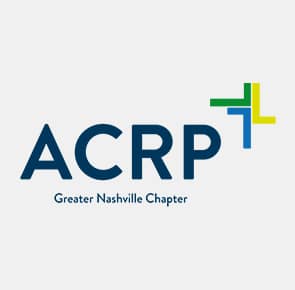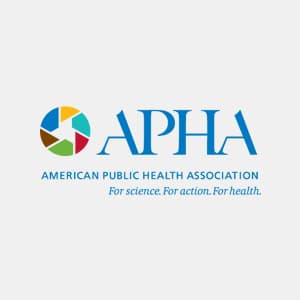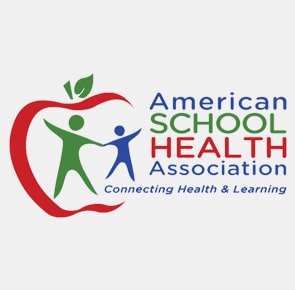What Does a Career in Public Health Entail?
After earning an online or on-campus associate, bachelor's, or master’s in the public health field or a related field, you'll have many public health career options open to you. Depending on the specialization or health degree programs graduates choose in college, public health professionals may work in multiple capacities relevant to public health: as health educators, creating public health policy, reviewing environmental health issues, providing mental health or substance abuse support, working as community health workers to create improved health outcomes, and much more. If your preference is to work behind the scenes, you may work as a public health policy advisor, healthcare administrator, or in emergency management. If you earn a dual degree in public health and marketing, then you’ll be able to blend these together, working as a marketing professional within the field of public health or for a hospital.
Whatever your choice is, you will work to understand the causes of injuries and disease, then lessen their destructive impacts. In this field, you will have plenty of job opportunities with excellent salaries.
Featured Online Programs
Typical Online Public Health Degree Requirements
As you prepare to declare your major in public health, you need to make sure you have completed and crossed off several requirements by the end of the semester in which you intend to apply:
- Complete mandatory number of credit hours (some universities don’t allow you to take these classes in the same semester)
- Complete any mandatory prerequisite classes with a minimum satisfactory grade
- Earn a cumulative GPA of a minimum of 2.75 in all courses, including all college-level courses you are taking
Typical Public Health Certifications Needed
 Educate yourself on which credentials you’ll need before you apply for them. “Credentials” means any certification, education, or license in your major. State licensing departments are responsible for determining which applicants qualify for certifications and licenses.
Educate yourself on which credentials you’ll need before you apply for them. “Credentials” means any certification, education, or license in your major. State licensing departments are responsible for determining which applicants qualify for certifications and licenses.
The laws surrounding certification may differ from state to state. If you are leaving one state to work in another, educate yourself on the laws and services you’ll be allowed to provide.
Academic Standards for Online Public Health Degrees
Maintain a high GPA that respects the minimum required by your university public health program. If your grades fall, you’ll be placed on academic probation, which means you may not be allowed to continue in the program.
Public health students are required to be honest academically; in addition, they will be expected to respect and uphold the ethical standards that all public health professionals practice.
Exam/Experience Needed for Public Health Degrees
Some public health programs require you to take and pass entrance exams on a written English assessment and math assessment. In your field, you will use these skills daily.
Before you apply to a public health program, the university you enroll in may require you to submit an essay that spells out the experience you have in health-related areas.
Graduate students may be required to take an entrance exam. The Graduate Record Examination or GRE is the exam that graduate students entering a public health field take. You’ll be required to demonstrate a mastery of quantitative reasoning, verbal reasoning, and good analytical writing.
Associate Degree in Public Health Online
You can begin your public health education with an online or in-person Associate of Science in Public Health. You’ll take introductory courses in several liberal arts disciplines such as sociology, psychology, wellness, and health. Next, you’ll continue with interpersonal communication, leadership, and motivation, which will all help to prepare you for an entry-level career in one of several safety, occupational health, or community healthcare fields.
Online associate degree coursework may include:
- General education classes, 30 semester hours
- Introduction to Healthcare Administration
- Health Services Organization
- Wellness: Health Promotion and Disease Prevention
- Introduction to Chemistry with Lab
- Public Health in America
- Healthcare: Moral Issues
- Foundations of Nutrition
- Elective Requirements, 8 semester hours
Bachelor’s Degree in Public Health Online
When you get past your general education in an online bachelor's degree in public health program, you’ll begin to learn about biostatistics, health policy and management, mental health, substance abuse, community health workers programs, epidemiology, social and behavioral sciences, emergency management, and environmental health. You’ll also learn about the public healthcare system in the U.S. and overseas and emergent public health concerns (pandemics and new environmental threats) that threaten our world and health. These degrees are, in many schools, available through 100% online or hybrid (online and in-person courses) programs.
Once they graduate, public health professionals may gain work experience by working in a variety of careers in public health including voluntary health agencies, public health departments, hospitals, human services agencies, insurance companies, rehab centers, wellness centers, corporate worksites, family planning clinics, community health organizations, and managed care facilities.
Example Courses in Public Health Programs:
- Epidemiology and Biostatistics
- Occupational Health & Safety
- Vector-Borne & Zoonotic Diseases
- Built Environment
- Institutional and Recreational Facilities
- Air, Water, Food, Wastewater, Soil, Hazardous Waste, & Technology
- Risk Assessment
- Administration and Enforcement of Health & Safety Laws
- Biology, Chemistry, Physics, Geology
You will also have to take your general education classes and any electives in your field.
Concentrations: Allied Health,Clinical Trials Research,Health Promotion and Education,Health Services Administration
Master’s Degree in Public Health Online
If you have plans to earn an MS public health degree or Master of Public Health (MPH), you need to know what public health careers are available for you. These include community health worker and health educators, community nutrition specialist, community health workers or global health workers, epidemiologist, and government policy analyst. These degrees are also available through online or other flexible options because they are created for working professionals.
Example Coursework:
- Health Through the Life Span
- Health Promotion, Program Planning and Design
- Cultural and Cross-Cultural Perspective in Health
- Health Behavior and Change
- Principles of Epidemiology
- Environmental Health
- Perspectives on Public Health Research
- Biostatistics
- Policy Issues in Public Health
- Capstone in Integrative Project
-
(Electives)
- Occupational Health and Safety
- Mental Health and Society
- Global-International Health Issues
- Ethical Issues in Public Health
concentrations:Biostatistics, Epidemiology, Disaster Management & Emergency Preparedness, and Public Health and Policy Management
Associates, Bachelors, Masters with Cost Range for Each
Associate’s Tuition Rates:
In New Mexico: $1,080, full-time; $90/credit hour
On average, an Associate Degree will cost between $25,000 and $30,000.
Bachelor’s Tuition Rates:
$9,000 per year, at the lowest in-state, public school rates; $68,000, at the highest out-of-state, private rates. However, $9,000/year is an outlier. Most of the lowest annual rates are around $17,000.
Master’s Tuition Rates:
$16,000, at the lowest in-state, public school rates; $60,000, at the highest out-of-state, private rates.
Public Health Fields of Study
Pharmacy Technician - mean annual salary: $32,170
Pharmacy techs work with licensed pharmacists to dispense prescriptions to customers or professionals in the healthcare setting. Pharmacy techs need to pass a pharmacy tech certificate program, pass an exam, and become certified.
Pharmacy techs should be well-educated in pharmaceutical technology, drug classifications, proper drug administration, and pharmacy management.
Medical Assistant - mean annual salary: $32,850
Medical assistants work hard within allied healthcare, covering responsibilities for clinical and administrative tasks. The medical assistant works directly with patients, managing patient records and health information data. Requirements include clinical internships and practical training in a real-time work environment.
Education required: High school diploma, on the job training, although most employers prefer an MA with an associate degree or certification.
Phlebotomist - mean annual salary: $33,750
Phlebotomists draw blood and prepare it for lab tests. They manage transfusions, take part in research and work with blood donation centers. They will work closely with patients in labs, doctors’ offices, and in hospitals. The phlebotomist is required to hold a post-secondary certificate from a phlebotomy program. Your state may or may not require formal certification.
Dental Assistants - mean annual salary: $37,890
Duties vary by dental office and state. Generally, assistants help the dentist by prepping the patient for dental exams and treatments, providing patient care, and sterilizing instruments. Your state may or may not require formal education. If it does, you may need a degree from an accredited program; you will also have to pass a state exam.
Medical Records and Health Information Technicians - mean annual salary: $41,460
These specialists work solely with the management and organization of patient records and other related data. They will use various systems to classify and categorize different pieces of information for database registries, insurance reimbursement needs, and tracking of medical histories. A high-quality billing and coding program is a frequent area of specialization.
Find Online Public Health Schools
Occupational Health and Safety Specialists - mean annual salary: $71,780
This specialist collects data and analyzes several types of work environments and working procedures. They inspect the workplace to ensure adherence to federal regulations on safety, health, and environment. They work with specialists to carry out tests and measure potential hazards to prevent harm to the environment, workers, property, and the public.
Epidemiologists - mean annual salary: $69,660
The epidemiologist is a public health professional responsible for investigating the patterns and causes of disease and injury to humans. They work to reduce the occurrence and risk of negative health outcomes, using research, health policy and community education.
Field of Study Average Salary by Degree Level
| Field of Study | Associates/Certificate Holder Salary | Bachelors Salary | Masters Salary |
|---|---|---|---|
| Health Educator and Community Health Worker | - | $53,940 | - |
| Epidemiologist | - | - | $69,660 |
| Environmental Scientist and Specialist | - | $41,580 | $122,510 |
| Medical Scientist | - | $82,090 | $150,520 |
| Phlebotomist | $30,000 (up to $45,000 with experience) | - | - |
Public Health Occupations and Salaries
Epidemiologists are highly educated and trained to spot patterns and causes of illness that can cause permanent injury in humans or kill them. They carry out studies on public health problems to find ways of preventing and treating them if something develops. They collect data and analyze it, so they can spot the development of health problems and diseases.
Environmental Scientists and Specialists work heavily with the natural sciences to protect both the environment and human health. This involves clean-up of polluted areas, notification of policymakers, and working with industries to reduce waste. They investigate samples of soil, food, water, air, and other materials to detect pollution and serious viruses and bacteria. They write technical reports and present them as they explain their findings.
Medical scientists carry out research in the lab to pinpoint health risks and help improve human health. Clinical research trials and other investigative methods are a big part of their daily work. They study human diseases and methods to prevent illness and treat it. They prepare and analyze medical samples and data, looking for toxic pathogens and chronic diseases. They create and test medical devices; standardize drug strength, doses, and methods to enable mass manufacturing and distribution to those who need the medications.
Annual Salary by Occupation (Range)
| Occupations | Entry Level Salary Range | Mid-Career Salary Range | Late Career Salary Range |
|---|---|---|---|
| Health Educator | $38,500 | $50,500 | $56,800 |
| Epidemiologist | $51,500 | $75,400 | $96,800 |
| Environmental Scientist | $43,600 | $59,000 | $81,700 |
| Medical Laboratory Scientist | $51,000 | $60,200 | $67,200 |
| Health and Safety Specialist | $56,300 | $65,900 | $78,600 |
| Health Informatics Specialist | - | - | - |
| Healthcare Administrator | $55,800 | $75,000 | $91,800 |
| Biostatistician | $67,000 | $86,500 | $113,700 |
Important Questions to Ask (FAQ)
How Long Does It Take to Earn a Public Health Bachelor’s Degree Online?
The online public health bachelor’s degree option requires you to satisfactorily complete around 180 credits. Between 60 and 70 of these will be your general education requirements.
With this many credits, you can expect to be in school for approximately 5 years if you take 16 credit hours per semester, as will be expected. If you take fewer credits (12), expect to spend closer to six years in school. Try to take summer classes. You will finish more quickly that way.
How Much Does an Online Public Health Bachelor’s Degree Cost?
One university charges resident students $10,127 for one academic year’s tuition. Non-residents pay $35,508 per academic year. Fees, such as services and activities, technology fees, and others, add an additional $1,100+ to the individual student’s bill.
Does the School Have the Online Major You’re Considering?
If you already know what you will be majoring in, you should explore the options at each university you’re considering. The university undergraduate catalog and graduate catalog, if you are a graduate student, will tell you if the program is carried in these schools.
Another option: call the admissions offices of each university. They can tell you whether they carry the major you’re interested in or not. After all, you don’t want to do all the work of getting admitted only to find they don’t carry a public health major or equivalent.
How Many Students Graduate “On Time,” in Four Years?
 While circumstances may develop that keep you from graduating in four years, you should do everything you possibly can to keep this from happening. Yes, it’s difficult to anticipate accidents, illness, or a shortfall in tuition money.
While circumstances may develop that keep you from graduating in four years, you should do everything you possibly can to keep this from happening. Yes, it’s difficult to anticipate accidents, illness, or a shortfall in tuition money.
Today’s current students in universities have less than a 50% chance of graduating in four years. If you are going to be one of those who graduate in four years, you need to know what you can do. Take 15, rather than 12 credit hours each semester. Take summer classes to help speed up your program. If you have to work, allocate the fewest hours to a job that you can.
What Kind of Accreditation Does the Online Program Hold? How is it Regarded in the Field?
Accreditation means that an accreditation agency has closely inspected the university and program you’re interested in. The results of these inspections proved to the agency that the academics and faculty are both of high quality.
Public health programs are accredited by the Council on Education for Public Health (CEPH). This agency is recognized and highly regarded all over the nation for public health programs and schools of public health.
Software, Technology & Skills Needed
- Skills: Interpersonal
You will interact with people and groups almost daily. You need to communicate well and work as a member of a team. You’ll confront conflicts between team members and members of the public every day. You need empathy and the ability to be quickly adaptable. - Skills: Problem-Solving
Your profession often moves into uncharted areas, which leads to issues you have never dealt with before. Your ability to look at an issue and solve problems makes you an invaluable member of your organization. You may be working with someone from another discipline or even philosophy. Again, you’re going to need to find common ground to make the work of both groups go smoothly. - Technology: Programming Knowledge
If you know computer languages such as SQL, Java, Python, or C, you’ll be able to help build health information systems for your discipline. - Software & Technology: Work with Health Data Systems
Health informatics means that you are using technology every day to input information about a group or a public health event. A health informatics bachelor's degree can help you tremendously.
Public Health Scholarships
-
Mary, Gary, and Douglas Ammon and Concerned Black Men Scholarship Fund
Amount: $1,200-$3,600
Deadline: August 28
This scholarship, established in 2014, was created to allow undergraduate students to take the public health classes they need for graduation. This fund helps to support the efforts of students who live in Temple University’s North Philadelphia community (within the 19121, 19122, 19132, 19133, and 19138 ZIP codes at the time they apply for admission). This scholarship is awarded on the basis of academic merit and financial need. The funds from this scholarship allow people of color to achieve their goals and dreams so they can provide health benefits to society.
-
Mat-Su Scholars Awards Program
Amount: $10,000 - $20,000
Deadline: Varies
This scholarship is based on an applicant’s stated career goal, rather than on financial need. Any student applying must be entering a degree program based on health and wellness careers.
-
Advancing Public Health Excellence Scholarships
Amount: One full tuition scholarship and 2 $10,000
Deadline: Varies
These scholarships are offered to students earning their master’s degree through Walden University Online. You must be a first-time student and never have received a scholarship through them before.
-
Dr. Carruth J. Wagner Scholarship in Public Health
Amount: $2,500
Deadline: February 10
This scholarship serves to meet the student’s career goals in public health. It was designed to enhance the potential for students’ contributions to this field. The scholarship also helps to bring challenges in public health to the community’s attention and demonstrates how effective leadership in public health may help communities and public health professionals meet those challenges. Several students are helped annually by this scholarship.
-
Shire Fellows Fund
Amount: $2,000 (55)
This scholarship, established in 2005 by Shire Pharmaceuticals, provides fellowships for graduate students or post-doctoral students who are enrolled in the College of Public Health. These award winners must plan to pursue their careers in the psychopharmacology of Attention Deficit Hyperactivity Disorder (ADHD and other problems related to this disorder.
-
CPH Visionary Fund
Amount: Up to $5,000
Deadline: December 14
This fund was created in 2013 by the College of Public Health’s Board of Visitors. It provides financial support to students with a “reasonable” emergency that will interfere with or slow academic progress. To be eligible, students must be in good academic standing with the university and College of Public Health.
Professional Public Health Organizations
- ACRP
- APHA
- ANA
- ACE
- ASHA

ACRP
American Association of Clinical Research Professionals
This public health organization works to provide a high degree of global leadership in an effort to increase excellence and integrity in the clinical research field. Founded in 1976, the AACRP reaches out to help research nurses, public health nurses, and other health professionals who work in clinical investigations. AACRP also assists with the ability of these groups to network with other clinical health professionals and to access their annual educational needs.

APHA
American Public Health Association
This organization focuses its efforts on the improvement of the health of communities and people everywhere in the U.S. APHA works to strengthen this profession and ensures that stakeholders possess the most recent public health research and information available. The American Public Health Association also works hard to promote best practices in public health, as well as advocating for critical public health issues.

ANA
American Nurses Association
The American Nurses Association is the sole organization to fully represent every interest of all three million registered nurses within the U.S. ANA works hard to advance the nursing profession including public health nursing. It promotes nursing rights within the workplace, projecting a positive yet realistic view of this professional field. ANA lobbies Congress and pertinent regulatory agencies about healthcare matters that impact nurses and the general public.

ACE
American College of Epidemiology
The American College of Epidemiology is responsible for serving epidemiologists. Composed solely of epidemiologists, it advocates on the issues that are important to this field. It features an admission process based on credentials. ACE also hosts several scientific meetings to help inform its membership of new changes in the field.

ASHA
American School Health Association
The American School Health Association’s mission is to increase the ability of association members to become stronger advocates for more effective school health strategies. By becoming stronger in this area, the academic and health outcomes for youth and children will improve. ASHA envisions a body of healthy students who will be better able to learn in a healthier, safer environment as teachers, academic professionals, and school nurses care for them, both in their schools and communities.
Choosing an Accredited College
Accredited universities, colleges, and public health programs will benefit you with the highest quality of academic experiences and faculty. Staff members should be approachable, helpful, and professional, holding only your best interests in mind. With an assurance that your chosen program is accredited, you will be able to take your classes and know they are going to help you meet your eventual goal of becoming a public health professional. Once you graduate and join the workforce, you will then turn around and offer your public health expertise to the communities you serve.
Online vs. On-Campus vs. Hybrid
With online learning, you will have the flexibility that you don’t have in a face-to-face program while still getting the content and curriculum offered to on-site, on-campus students in health sciences. You can “attend” classes at 2 a.m. if that’s what suits your schedule. If you have more time this week to study, but you know next week will be packed with other commitments, you’ll be able to study more now and still get your work in on time.
That said, you need to be highly disciplined and self-motivated to take all of your classes online. Without a professor standing in front of the class to accept homework assignments, it will be easy to procrastinate on an assignment “just this one time.” However, if you work a large number of hours during the week, an online education is tailor-made for your time needs.
You also don’t get a high degree of social interaction with online education. The only way you’ll interact with fellow students will be in the forum discussions. Your costs and debts will be less than they are for face-to-face classes. You don’t have to pay for a dorm room, gas, or transportation. This means money in your bank account.
Hybrid courses, or blended courses, are a mix of face-to-face and online. You may spend one or two class sessions “in residence” or on-campus. The remainder of your coursework will take place online. You don't get to skip any of the work just because your taking a course or two online.
Frequently Asked Questions
What is the difference between a Master of Public Health and a Master of Science in Public Health?
A master of public health is often focused on provided graduates with the ability to hold a position within a community where they can education and raise awareness of certain public health issues. On the other hand, a Master of Science in Public Health is more focused on research, such as learning how to follow a pandemic back to its point of origin. In these programs, students might learn how to design research studies, collect data from those studies, and analyze that data to come up with answers to common questions in the field. So, deciding which direction you want to go with your master’s degree will depend on how you want to use your degree in the field. Do you want to be tracking down answers to the big questions or do you want to be responsible for relaying those answers to the public and creating policy for how best to proceed once they are found?
can I complete a public health degree 100% online?
Yes. As most of this degree is learning how to communicate issues to the public, either in written form or through another type of media, it shouldn’t be too difficult to complete the program online. There are no labs or other required hands-on learning in most programs covering this subject.
Does the College Have Post-Graduate Job Placement Help and Assistance?
It’s not easy to transition from studies, writing papers, research, and class attendance to job searches, resume writing, and cover letter composition. You need help with that. Most campuses have a career services office. Some even have a placement service. With career services, you can find out what you are best suited for, career-wise.
Once you are close to graduation, attend job fairs and other career-planning events. Work on your resume with a placement counselor, practice interview techniques, and define what “professional clothing” really means. All of this will pay off in a job offer.
Why You Need to Consider How Rating and Accreditation Can Affect Your Salary
College rankings serve a purpose. However, they are only as beneficial as the categories they assess. They make use of data that has been provided by the universities. The information they provide can be useful—but the best determination of the best college for your needs is your own visit and tour of the universities you are most interested in. In the end, it’s all about the best fit between you and the institution.
Your future employers will focus strongly on accreditation of your university public health program. If it was accredited, your salary offer may be higher. Employers request official transcripts, not only to view your classes and grades, but also to look for proof of accreditation. If your program was not accredited, it will be hard to beat out your competitors in the field who have accredited degrees.
